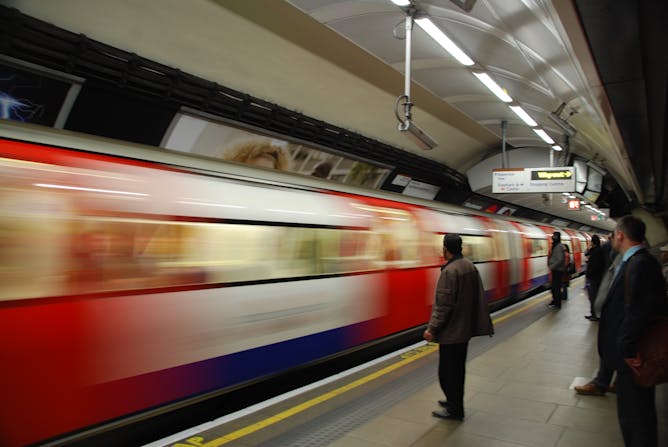|
Dear Friends,
Five years ago the first content commissioned by The Conversation in the UK was published. At the time, the project attracted some attention from other media. Most was pretty welcoming and positive. But not all. One reporter fixated on academic authors having sign-off on anything we publish. We were then, and remain today, particularly proud that Conversation writers are involved up to and beyond the point of publication. Anything you read on the Conversation has gone live with the blessing of the authors. It has not been spun, manipulated or misrepresented.
When we launched, we did so hoping to build trust with readers, and contributors. Five years on, and we feel the value of what academic expert authors provide, via this platform, is greater than ever. There need to be places where readers can seek accounts of events, explanations of research and interpretations of international developments that are grounded in reliable knowledge.
Of course, people will disagree about certain perspectives and analyses – and that is to be encouraged. We could hardly be The Conversation, if we did not support debate. Via our pages, and on social media, we have hosted discussions on a variety of topics. We have also chaired live events that have seen intense, but intelligent, discussion.
The establishment of the bureau in London, was a key step in the internationalisation of The Conversation, which had launched in Australia in 2011. Since 2013, operations have also set up in the US, Africa, France, Canada and Indonesia. In northern Europe, we have gone from working with a core of 13 Founding Partner universities to 79 member institutions. This is how the service is funded – allowing the employment of professional editors to work with academics to create the content that arrives in your inbox every day.
Since our launch, this edition of The Conversation has published close to 20,000 articles by almost 12,000 authors, launched two podcast series and hosted live events. The written work of The Conversation globally reached an audience of around 37m people last month – more than 14m of those came via this edition.
The Conversation has taken academic expertise directly to a wider audience than was possible before it existed. And such incredible reach is in part down to our republishing strategy, which encourages others to use our content, free of charge. The articles regularly appear in leading publications around the world – from the Washington Post, to the BBC, CNN, the i newspaper, the Guardian, ABC News, the New Zealand Herald, Scroll India, Le Monde, El Pais, Quartz and many, many more. Our authors often appear on broadcast media, give evidence to policy makers, and engage in new research projects as a direct result of the pieces they write.
So on the occasion of our fifth birthday, we say a huge thank you to all our supporters – university members, readers, and other champions of the project. But most of all we say thank you to the academic experts who give their time and knowledge to make The Conversation what it is, and what it will remain – a free to access project for the public good, that seeks to enhance understanding of key international news and research developments as they happen.
I’ve written an extended version of this birthday greeting, on our blog. It includes links to some of the notable articles we’ve published over the five years, and to some comments from authors on what it is like to work with our editors. If you enjoy the work produced by The Conversation, then please share this message with friends and colleagues. They can join in, by clicking here, and signing up for the daily email.
|

mattspinner/Flickr.
Nicole Badstuber, UCL
TfL's money troubles worsen, as passenger numbers fall for the first time in two decades.
|

Shutterstock
Sean Lang, Anglia Ruskin University
A heated debate is unfolding on Twitter about whether it's OK to compare middle-aged white men to boiled meat.
|

Busting dams.
PA
Hugh Hunt, University of Cambridge
The science behind the famous World War II attack masterminded by Barnes Wallis.
|
Politics + Society
|
-
Omid Shams, University of Portsmouth
Just as Iran's centre ground was collapsing under political pressure, Donald Trump offered the hardliners a gift.
-
Karolina Augustova, Aston University
Men living in transit camps on the EU's borders are at risk of exploitation and violence.
-
Enze Han, University of Hong Kong; Joseph O'Mahoney, University of Reading
Of the 72 countries that still criminalise gay sex today, at least 38 of them were once subject to British colonialism.
-
John Erik Fossum, University of Oslo; Hans Petter Graver, University of Oslo
Norway's relationship with the EU is carefully managed – what lessons does it have for Britain after Brexit?
|
|
Health + Medicine
|
-
Daniel Smith, University of Glasgow; Laura Lyall, University of Glasgow
Largest study to date finds link between disturbed circadian rhythm and mood disorders.
-
Lauren Potter, Heriot-Watt University
Designers take note: your products may be less useful for people as they get older.
-
Mark Hamer, Loughborough University
Why a bricklayer is more likely to die before a banker.
|
|
Environment + Energy
|
-
Ashley Murphy, Keele University
The council has considered terrorism, nuclear weapons and international crime. But it has largely ignored the climate.
-
Nick Davies, University of Salford
Smart technology can help the environment, preserve biodiversity and protect sensitive areas, such as national parks.
|
|
Science + Technology
|
-
Adam Behr, Newcastle University
Researchers analysed 30 years of British pop charts and found a trend towards sadness – but the days of judging music purely on stylistic measures is long gone.
-
Nick Perham, Cardiff Metropolitan University
The aliens of A Quiet Place track their prey by hearing something outside the norm.
|
|
Business + Economy
|
-
Barnali Choudhury, UCL; Martin Petrin, UCL
The gender pay gap and CEO to worker pay ratio won't be fixed by corporate governance initiatives alone.
|
|
Arts + Culture
|
-
Dina Iordanova, University of St Andrews
Cannes is not so much a festival for new films and talent as a closed shop for the film industry's elite.
|
|
Blog
|
-
Stephen Khan, The Conversation
The Conversation launched its first international edition five years ago this month. It continues to grow.
|
|